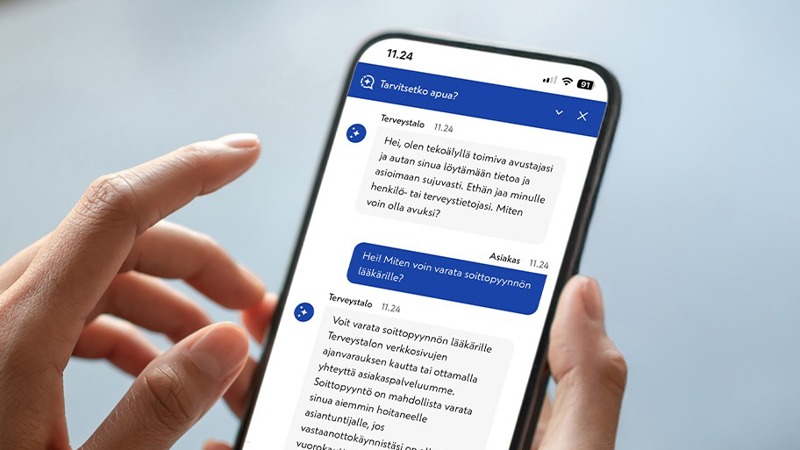What future leadership looks like?
According to Hertta Vuorenmaa, an expert on the future of work and management, work is a huge social institution, and changing it is always difficult because we have established ideas about how to do work. Understanding historical turning points can help in managing current changes, as changes in working life are not only technology-driven, but require holistic thinking and managing people's emotions.

Throughout history, working life has always gone through periods of change that have altered the nature and structure of work. The Industrial Revolution saw the replacement of manual occupations by factory jobs, and the emergence of new job roles and organisational models that continue to evolve with technology. The globalisation of the late 20th century and the information technology revolution were also key turning points that influenced changes in jobs and occupations. According to Vuorenmaa, the current transformation of working life is a period in history where the success of organisations depends on their ability to lead a culture where it is possible to learn-from and learn-to-learn, innovating by using technologies to build new ways of doing things.
"At the heart of work-life change is the demand to learn away and the opportunity to learn new. A key element here is psychological safety, as learning requires a safe environment where people can ask questions and put forward ideas without fear of ridicule. It cannot be left to individuals to learn new things, but to remain competitive, organisations must integrate learning into their everyday work and actively support employees in this development," says Vuorenmaa.
The technologies of the Fourth Industrial Revolution offer the opportunity to create a sustainable working life globally, but nothing happens by itself, it all depends on us.
The adoption of technology is not an end in itself. To realise its benefits, leaders must critically assess which solutions support business and work - and avoid inefficient fads. “
Hertta Vuorenmaa
The working life of the future is as good as we want it to be
The introduction of technology does not automatically bring positive changes, but requires a systemic approach that takes into account people's emotions and their reactions to change.
"Emotion management is about how organisations can understand and manage the emotions of their employees as part of change. Enthusiastic employees can be drivers of change, while those experiencing shame are important to identify and address with appropriate support. Successful change requires a holistic understanding of emotions and conscious management of emotions," says Vuorenmaa.

Critical, people-centred and personal
Leadership in the new era requires leaders to be proactive, empathetic and constantly learning. Vuorenmaa lists concrete tips to help everyone develop as a leader and help their organisation succeed in the midst of change.
1) Be open to change
Try to identify your own established ideas about work and challenge their persistence. Lead by example by being open to new ideas and change. Embracing change requires flexibility and adaptability.
2) Listen to your employees and manage their feelings
Ask and listen to the views and feelings of your employees to understand their needs and concerns. Managing emotions is as important as managing practice. Create an atmosphere where employees feel safe and valued.
3) Learning in and out
Encourage continuous learning and unlearning to enable the organisation to adapt to a constantly changing environment. Create space for learning and build a culture that enables psychologically safe growth.
4) Use technology appropriately
Technology offers huge opportunities. Use the latest technology to increase efficiency and sustainability.
Read more occupational health articles

What is metabolic age and why should you care about it?
A new laboratory study by Terveystalo reveals how your body is aging. Metabolic age makes biological aging visible.

Smooth assistance for your needs – our AI assistant is now at your service
You can now find Terveystalo’s AI assistant on our website — a quick and easy way to get answers based on the information available on our site. For now, the assistant is available only on the Finnish‑language section of our website, but you can chat with it in English.

How technology helps relieve mental stress: "When the load is high, the threshold must be low."
Mental health disorders have overtaken musculoskeletal disorders, which had long been the leading cause of sick leave. Work is changing, and the range of sick leave caused by mental health issues has also changed. We must be able to offer new solutions to this challenge.

Extensive data set of 200,000 samples: Nightingale study reveals link between illness risks and sick leave
Data from the Finnish Nightingale study, which is used in Terveystalo's occupational health services, reveals a clear link between lifestyle-related health risks and sick leave. The exceptionally extensive data set of over 200,000 customers shows that people with a low risk of illness had significantly fewer absences, while those in high-risk groups had more absences. The results highlight the importance of preventive healthcare in ensuring work ability and the competitiveness of companies.

Strong identification speeds up your service experience when calling us
Soon you can identify yourself easily and securely before your call is answered. Read below to see how the identification process works.

Terveystalo's digital services have been awarded the internationally recognized ISO27001 information security certification.
Terveystalo's information security practices, processes, and risk management are in line with international best practices.